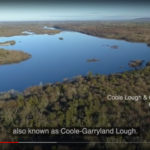To celebrate World Wetlands Day and 50 years since the…
Report of the Sludges and Organic Fertilisers Working Group
This report details the findings and recommendations of the Sludges, Biosolids and other Organic Fertilisers Working Group.
A Sludges, Biosolids and other Organic Fertilisers Working Group was established in April 2024 with representatives from a number of organisations involved in the regulation and management of sludges being applied to land. The Working Group was tasked by the National Technical Implementation Group (NTIG) to identify the existing controls and legislation in relation to land spreading of sludges and biosolids and to identify any gaps in knowledge or breaks in chains of custody. It was also agreed to extend the scope to include other organic fertilisers being applied to land. The Working Group was asked to make recommendations back to the NTIG for consideration. This report was submitted to NTIG in May 2025 and details the findings and recommendations of the Sludges, Biosolids and other Organic Fertilisers Working Group.
The report highlights the value of sludges and biosolids as fertilisers and soil improvers when used appropriately, but also identifies significant challenges in tracking their use. A lack of a centralised register and inconsistent data sharing between agencies were found to be key barriers to effective oversight.
Key Priorities
The Working Group made 12 recommendations, including three key priorities:
- Develop a national register and database to track the movement and application of sludges, biosolids and other organic fertilisers. This would improve transparency and coordination across all relevant authorities.
- Amend the Good Agricultural Practice for the Protection of Waters Regulations to require producers, contractors and farmers to record movements of these materials once the register is in place.
- Update the 2008 Codes of Practice for the use of biosolids in agriculture to reflect current knowledge and practices, with a greater focus on water quality and emerging contaminants.
Report of the Sludges, Biosolids and other Organic fertilisers Working Group
Learn More:
Reports and Research Papers
- Sewage Sludge in Agricultural Lands: The Legislative Framework in EU-28 (2024)
- Ireland’s State of the Environment Report 2024 – Chapter 14 – Environment, Health and Wellbeing | Environmental Protection Agency
- EPA Research 430: Sources, Pathways and Environmental Fate of Microplastics (2023)
- EPA Published Report – Determining Historic and Current PFAS Levels in AFFF in the Republic of Ireland (2021)
- EPA Research Report 345: Furthering Understanding of Emissions from Landfilled Waste Containing POPBFRs and PFASs (FUEL) (2021)
- EPA Published Report – Persistent Organic Pollutants, Landfill Leachate Sampling Study (2021)







